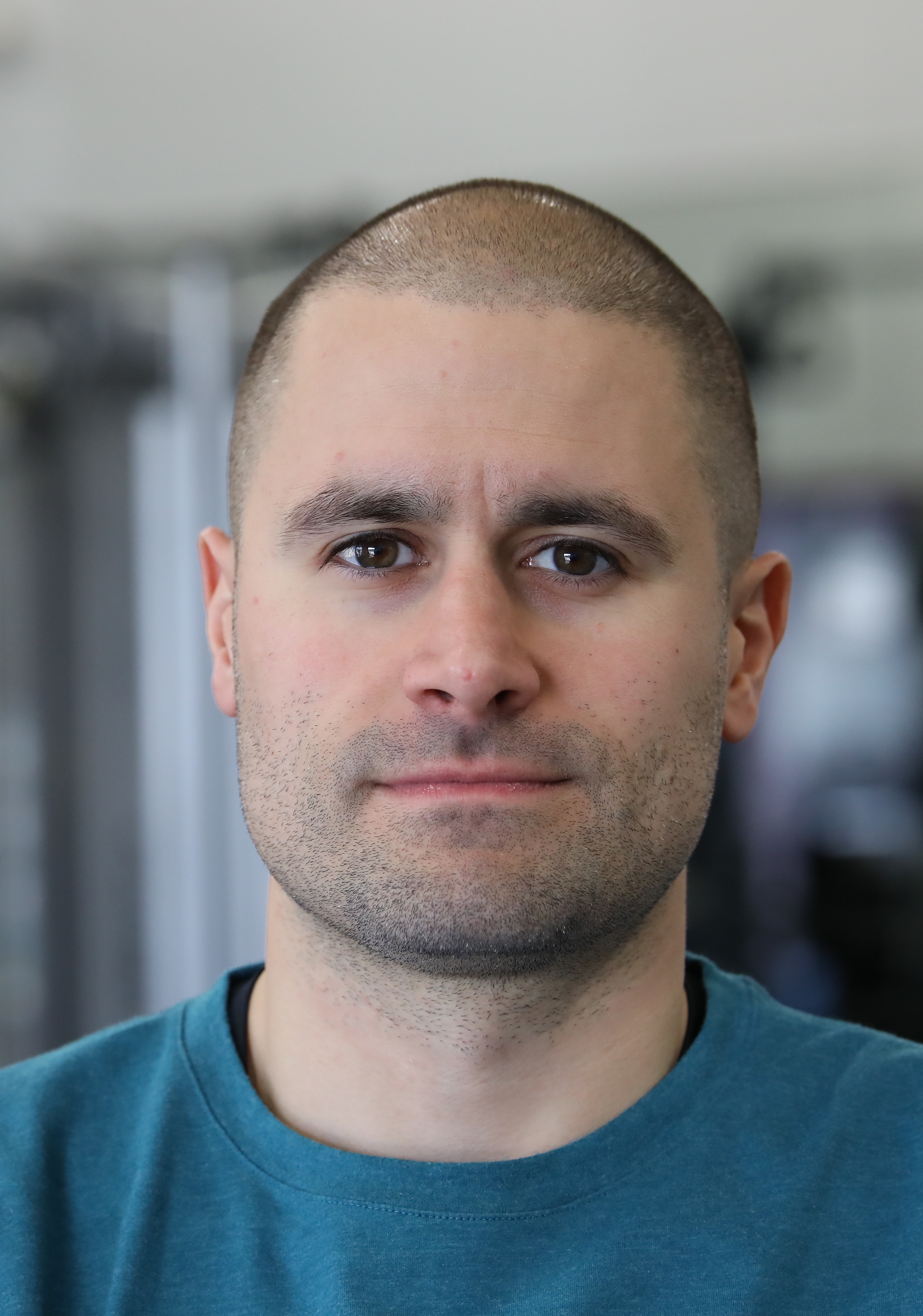3 Physical Advantages of Sleeping Well
In the first part of this Sleep Soundly series, we explored how to order your day so you rest better at night. Now in this second installment, let’s take aim at the physical benefits of upgrading to premium sleep. Of all the lifestyle challenges new TD Athletes Edge clients come in with, this is arguably the most widespread. Between screen time, hectic schedules, caffeine overstimulation, and some of the other factors mentioned in the previous article, many people’s sleep quality and duration are undermining their performance. Sound all too familiar? Then read on.
1) Play Hard Without Getting Hurt or Sick
One of the biggest yet most easily overlooked ill effects of sleep deprivation is a loss of sensory-motor ability. This can manifest itself in making silly unforced errors like turnovers in basketball or dropped passes in football, rugby, or lacrosse. Or perhaps if you’re a runner, you step down off a curb that you’d normally navigate without incident in an awkward way and twist your ankle. This is because the central computer piloting your body – your brain – is at a profound disadvantage when you don’t allow it the recovery it requires with a long, uninterrupted sleep.
Exercise scientists from Northern Kentucky University and Nova Southeastern University conducted a trial of mixed martial artists as they progressed through pre-fight camp. After evaluating objective and subjective measurements daily for six weeks, the authors wrote that “athletes who showed consistency in sleep…missed significantly fewer sessions due to fatigue and injury throughout.”[i] The fighters who got the best sleep improved their performance in a wide variety of tests, as well as in sparring, glove work, and other training scenarios. Better sleep scores also correlated with improved heart rate recovery between sessions and improved cardiovascular output, as measured by VO2 max.
Sleeping well on a regular basis can also mitigate your risk of getting sick. A study by a research duo who teaches at the Research Institute for Sport and Exercise Sciences at Liverpool John Moores University in the UK looked at the link between shuteye and a wide variety of health and performance outcomes. They concluded that “chronic reduction in sleep can lead to immuno-suppression” and recommended that if your sleep is cut short for any reason, taking a nap can help redress the balance.[ii]
2) Improve Your Fine Motor Skills
Sleep is often correlated with endurance and, as we’ll see in a moment, power and strength output. But it might come as a bit of a surprise that your slumber is also tied to how accurate you can be. It turns out that if you’re coming off the back of bad sleep, your expression of physical skills will inevitably suffer. To prove the point, a group of researchers from Stanford University led by Cheri Mah from the school’s Sleep Disorders Clinic and Research Laboratory tracked a college basketball team’s recovery and on-court performance data. Publishing their results in Sleep, Mah and her colleagues concluded that when the players extended their total sleep time, their free throw shooting improved by an average of nine percent.[iii] The players’ long-range sniping was elevated even more – by 9.2 percent – as a result of the sleep extension intervention. They also improved maximum effort sprinting and reported feeling less fatigued.
Commenting on the study for a Stanford School of Medicine article, Mah said, “The athletes were training and competing during their regular season with moderate-to-high levels of daytime sleepiness and were unaware that it could be negatively impacting their performance,” she said. “But as the season wore on and they reduced their sleep debt, many athletes testified that a focus on sleep was beneficial to their training and performance.”[iv] She went on to note that it wasn’t just sleeping on the night before game day that mattered, but up to two weeks before a competition (aka banking sleep). This was supported by another study that monitored the serving accuracy of tennis players. The authors wrote in Physiology & Behavior that “an increase in the sleep of approximately 2h per night significantly increased athletic performance.”[v] So if you’ve got a big event coming up, make sure you’ve dialed in a good and sustainable sleep routine well in advance and do your best to stick to it every single night so that you can bring your “A-game” when it matters most.
3) Increase Your Strength, Endurance, and Power
Another major reason for prioritizing your sleep every night is that it can help you improve just about every major physical quality. A review released via the International Journal of Sports Medicine noted that higher sleep quality leads to improvements in time to exhaustion, repeat sprint ability, power output, and submaximal strength (i.e., any set involving more than one all-out rep). The authors wrote that “improving sleep quality however is simple and effective, benefiting not only athlete health but also athletic performance.”[vi]
Similar findings were published by a trio of physiologists from the Human Performance Lab at Stanford University.[vii] They noted that increasing both the duration and quality of sleep can boost speed and injury and help optimize recovery. To help you do so, they recommended dialing in your sleep environment by making your bedroom cool, dark, and quiet, limiting nighttime screen exposure, and eliminating nighttime disturbances.
Check back soon for the third and final installment, in which we will explore the mental and emotional benefits of better sleep.
Need help dialing in your rest and recovery? Drop us a line and let’s talk about it.
[i] Corey A Peacock et al, “Sleep Data, Physical Performance, and Injuries in Preparation for Professional Mixed Martial Arts,” Sports, October 22, 2018, available online at https://www.mdpi.com/2075-4663/7/1/1/htm.
[ii] Thomas Reilly and Ben Edwards, “Altered Sleep-Wake Cycles and Physical Performance in Athletes,” Physiology & Behavior, February 2007, available online at https://pubmed.ncbi.nlm.nih.gov/17067642/.
[iii] Cheri D Mah et al, “The Effects of Sleep Extension on the Athletic Performance of Collegiate Basketball Players,” Sleep, July 1, 2011, available online at https://www.ncbi.nlm.nih.gov/pmc/articles/PMC3119836/.
[iv] Michelle Brandt, “Snooze You Win? It's True for Achieving Hoop Dreams, Says Study,” Stanford School of Medicine, June 30, 2011, available online at https://med.stanford.edu/news/all-news/2011/07/snooze-you-win-its-true-for-achieving-hoop-dreams-says-study.html.
[v] Jennifer Schwartz and Richard D Simon Jr, “Sleep Extension Improves Serving Accuracy: A Study with College Varsity Tennis Players,” Physiology & Behavior, November 1, 2015, available online at https://pubmed.ncbi.nlm.nih.gov/26325012/.
[vi] Kenneth C Vitale et al, “Sleep Hygiene for Optimizing Recovery in Athletes: Review and Recommendations,” International Journal of Sports Medicine, August 2019, available online at https://www.ncbi.nlm.nih.gov/pmc/articles/PMC6988893/.
[vii] NS Simpson, EL Gibbs, and GO Matheson, “Optimizing Sleep to Maximize Performance: Implications and Recommendations for Elite Athletes,” Scandinavian Journal of Medicine & Science in Sports, March 2017, available online at https://pubmed.ncbi.nlm.nih.gov/27367265/.
ABOUT THE AUTHOR

Tim DiFrancesco, PT, DPT spent 6 seasons as the Head Strength & Conditioning Coach of the Los Angeles Lakers and is the founder of TD Athletes Edge. He is nationally renowned for his evidence-based and scientific approach to fitness, training, nutrition, and recovery for athletes and fitness enthusiasts.
